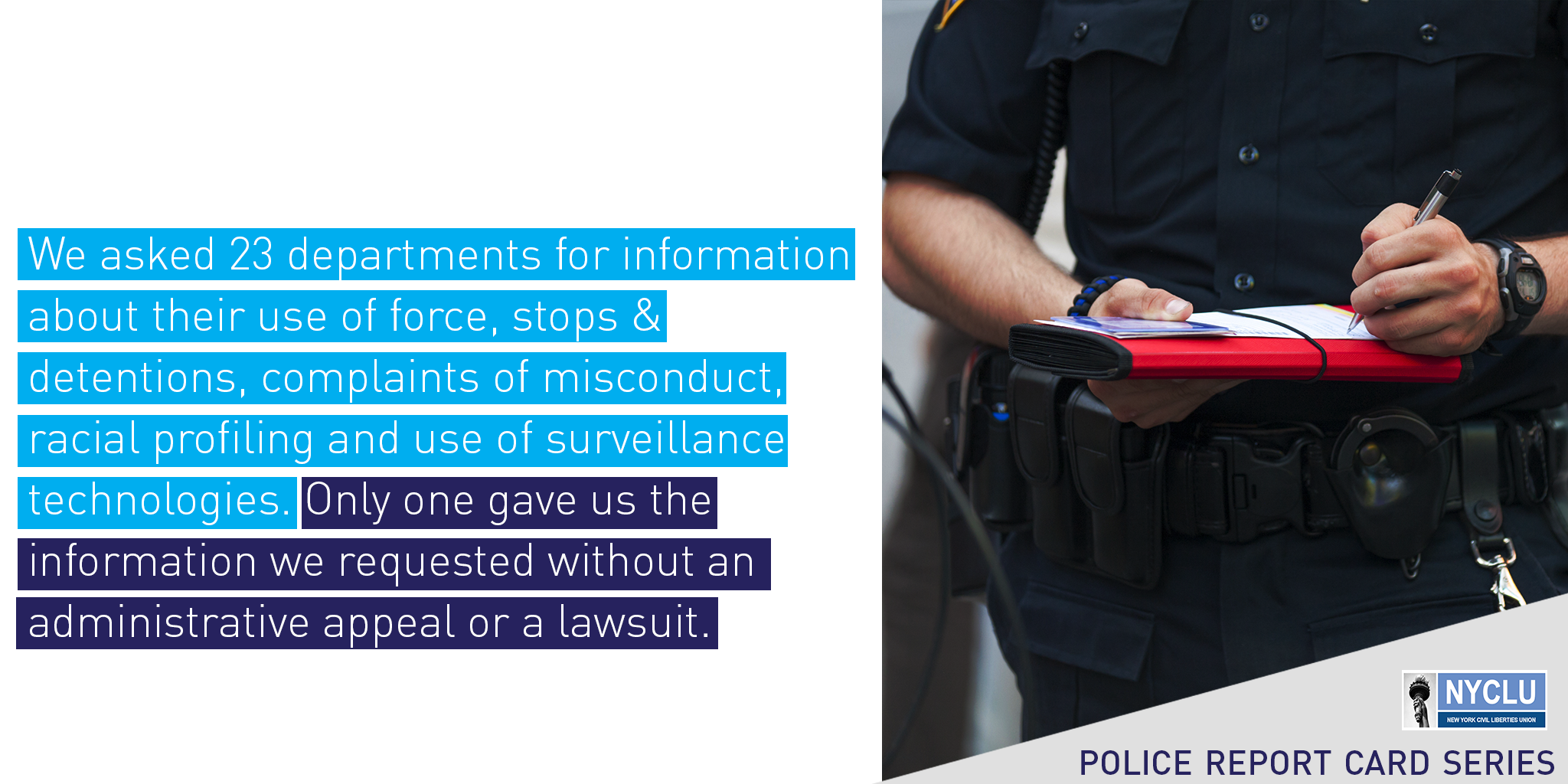NYCLU on Violent Crackdown of Pro-Palestine Protests at Columbia and City College
Civil Liberties Union

The New York Civil Liberties Union released a report today that details how far New York police departments go to keep information from the public on the use of force, stops and detentions, complaints about misconduct, racial profiling and the use of surveillance equipment.
The findings in Taking Cover are the result of Freedom of Information Law (FOIL) requests the NYCLU sent to 23 representative police departments. For over two years, departments ignored legal deadlines, excessively redacted documents, maintained inadequate staff to facilitate disclosure and had deficient recordkeeping practices. Of departments contacted, 20 did not respond within the time required. The NYCLU filed administrative appeals in 22 requests, as well as lawsuits with the Buffalo and Ramapo police.
“Police are supposed to serve and answer to the people of New York, yet departments across the state are being run like secret clubs,” said NYCLU Executive Director Donna Lieberman. “No department should be a black box. Police must open their books to the People to ensure the kind of oversight and accountability that builds trust with the community.”
Taking Cover notes that many departments were openly hostile to information requests. The Binghamton Police Department’s FOIL officer said he “didn’t care” about legal deadlines and refused to comply. It took 19 months and the arrival of a new city lawyer to resolve the NYCLU request. Other departments responded by sending pages of documents redacted well beyond what is legally permissible. When the NYCLU asked the Newburgh Police Department for its policies, it sent back blacked-out pages that had nothing to do with the request.
Departments also lacked resources and policies for handling FOIL requests, had staff that were not trained, kept inadequate records and held records that were not in searchable forms. For example, seven departments did not track the race of people stopped by police and another three kept incomplete records. Such conditions did not merely plague small departments. Hempstead police have no system for finding records and do not keep copies of policies in a single place. With nearly 120 sworn police officers and 50 civilian personnel, Hempstead has only one officer to respond to FOIL requests who also handles payroll, new recruits and coordinating the academy.
“For more than two years, police departments across New York delayed and dodged providing information that all New Yorkers have a right to,” said NYCLU Advocacy Director Johanna Miller. “Our requests weren’t about paperwork, they were about how police work. Our state and local officials need to make sure police departments have both the will and the way to answer to New Yorkers.”
Taking Cover calls on municipalities to do their part to ensure police comply with FOIL requests and provide answers to New Yorkers. The report also calls on state lawmakers to pass the Police Statistics and Transparency (STAT) Act, which requires uniform data collection and reporting on low-level law enforcement as well as deaths in custody. Finally, it urges the repeal of civil rights law 50-a, a narrow state provision limiting public disclosure of personnel records, but which has been misused to shield disclosure of officer misconduct.
Taking Cover is the introductory publication of the NYCLU’s Police Report Card Series, which will index and publish records received from police departments throughout the state and offer analyses.